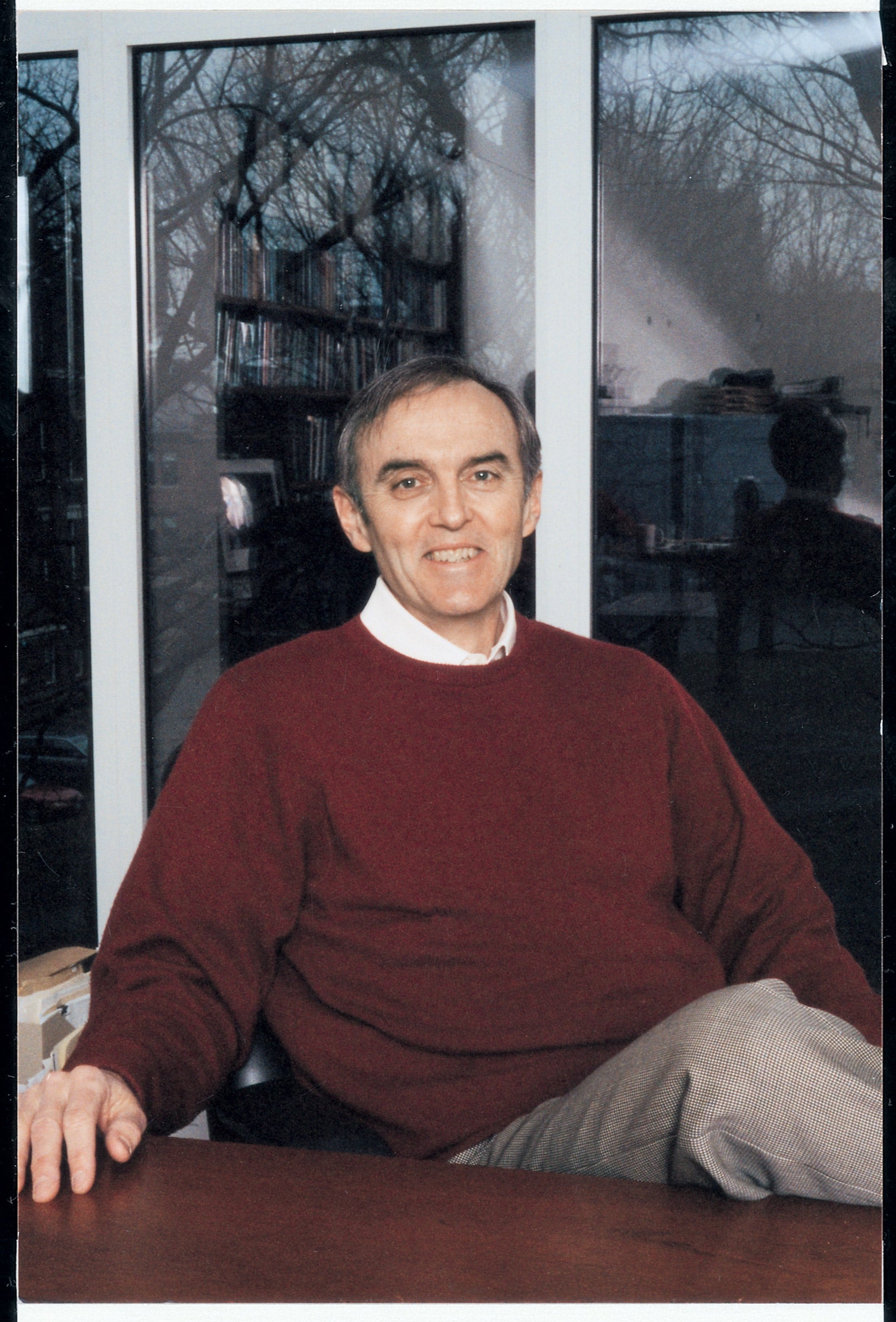
Credit: Kippy Goldfarb In his new book, HLS Professor W. Kip Viscusi criticizes the legal settlement between the tobacco industry and the states, and counters assumptions about the costs of cigarettes to society.
Not many people have to specify that they don’t think it’s a good thing that cigarettes kill people. But W. Kip Viscusi mentions it nonetheless because his work–and its subject matter–can be oversimplified, he says. Not to mention vilified.
In his new book, Smoke-Filled Rooms: A Postmortem on the Tobacco Deal (University of Chicago Press, 2002), the HLS professor of law and economics contends that the states’ total $243 billion settlement with the tobacco industry, which was finalized in 1998, did not represent money lost to cigarette-related costs. In fact, says Viscusi, cigarettes actually save money for the states. That’s because smokers die younger than nonsmokers, accounting for a substantial savings in nursing home care and pension costs, which more than offsets the medical costs of smoking. But he is not, he emphasizes, lauding premature death as sound social policy.
“If you hear the sound bite ‘Smokers die sooner–isn’t that great because they save us all this money,’ you think that this is an economist gone mad,” Viscusi said. “But if you actually work through it, it doesn’t seem as wacky.”
His conclusions about cigarettes’ costs to society resulted from “an elaborate bean-counting exercise,” he said, one that was provoked by antismoking advocates who claimed that cigarettes imposed a crushing financial burden on taxpayers. The tobacco industry, however, never used his numbers to bolster its case with the states–most likely, Viscusi says, because the centerpiece of his research is the fact that cigarettes kill people. (Though he has served as an expert witness for the tobacco industry, it has not funded his research, according to Viscusi.)
The states settled the suit, Viscusi contends, to gain revenue without the political fallout of raising taxes, though the price increase for smokers is in effect the same thing. And while the states claimed they sued the tobacco companies for money to combat underage smoking, they are using most of the settlement to balance their budgets. Tobacco companies, for their part, settled the suit to please investors and because the payments were structured so that they could pass on the costs over time, he believes.
“The smokers are the ones that end up bearing the brunt of the costs for this whole thing,” Viscusi said. “[The settlement’s] probably not good for society either because we don’t know now which suits make sense and which don’t, so if you actually played this out from the legal standpoint, we could have these issues resolved.” There have been follow-on suits for guns, lead paint, and HMOs, he says. A suit against the fast-food industry was filed in July. “There are a lot of risky products out there,” he said.
Viscusi should know. Since earning a master’s and Ph.D. in economics from Harvard University (but not a law degree), he has worked on issues of health and safety risks for his entire professional career. He has focused on cigarettes, he says, because smoking is the greatest risk most people take with their health. But it is a risk they take knowingly, he writes in his book. After examining survey data, Viscusi concludes that people actually overestimate the considerable risks of smoking. “Assuming that smokers do not share in the enormous amount of smoking risk information that has been disseminated (have they been locked in a cave?) bears no relation to reality,” he writes.
What is needed, he says, is accurate information about the relative risks of different cigarettes. In addition, he proposes that the government reverse its stance and encourage tobacco industry efforts to produce safer cigarettes. People are going to smoke, he says. And Viscusi, a nonsmoker, would rather smokers live longer than have to point out the economic benefit derived from their deaths.
“The antismoking argument is typically that no smoking is the best thing, and there’s no question no smoking is the safest thing, but almost 25 percent of our adult population continue to smoke, so they still like doing it,” he said. “If they’re going to do it, let’s say you have a cigarette that could completely eliminate the cancer risk, . . . I think it’s irresponsible from a health standpoint not to make that option at least available to people.”
